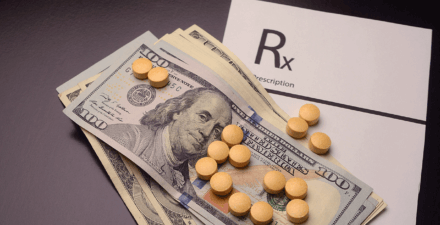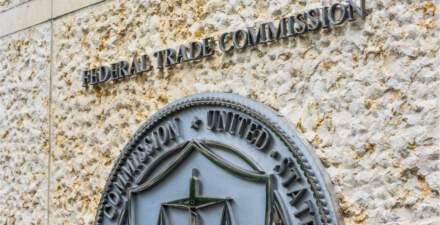Congress adopts historic prescription drug pricing reform

Here’s a sentence that might seem impossible, given our current political circumstances, but it’s true: The U.S. Congress just passed, and President Donald Trump signed, significant bipartisan legislation to curb prescription drug prices.
The year-end omnibus spending bill enacted last week contains the Creating and Restoring Equal Access to Equivalent Samples, or CREATES Act, a measure that strengthens market competition in the pharmaceutical industry by barring or limiting tactics that some drug companies use to prevent far less expensive generic versions of their products from coming to market.
The original Senate sponsors of the CREATES Act were Sens. Patrick Leahy (D-VT), Chuck Grassley (R-IA), Amy Klobuchar (D-MN), and Mike Lee (R-UT). The original sponsors in the House were Reps. David N. Cicilline (D-RI), Jim Sensenbrenner (R-WI), Jerry Nadler (D-NY), Doug Collins (R-GA), Peter Welch (D-VT), and David McKinley (R-WV).
As an attorney for the U.S. Federal Trade Commission, I saw drug companies use tactics time and time again to delay and prevent generic competition. These tactics enabled the firms to reap unfair profits at the expense of consumers, potential competitors, and ultimately the nation’s healthcare system, which thrives on innovation but struggles under the weight of excessive costs, especially for prescription drugs. Sadly, excessive prices can also cost lives.
The Washington Center for Equitable Growth supports research to understand the causes and consequences of increasing market power and to develop policy proposals that will strengthen competition. Earlier this year, as Equitable Growth’s director of markets and competition policy, I was asked by the House Judiciary Committee’s Subcommittee on Antitrust, Commercial, and Administrative Law to testify at a hearing on competition in the prescription drug market. I noted the unique aspects of the industry but emphasized that competition can have a significant impact on drug prices and innovation, as it does in other industries, when those markets work properly.
As I said then, “Competition plays a unique and fragile role in determining prescription drug costs: Unique because competition from generic alternatives is the only competition that dramatically reduces costs, and fragile because this competitive dynamic can be circumvented in many ways … It has become far too easy for companies to manipulate the system to delay competition and increase prescription drug costs.”
In addition to my time at the FTC, I spent 2.5 years as Sen. Klobuchar’s antitrust counsel. I was there when Sens. Klobuchar, Leahy, Grassley, and Lee came together to address two common and pernicious practices: sample blockades and safety protocol filibusters. And I was privileged to work on their solution, the CREATES Act.
To gain approval for a generic drug from the U.S. Food and Drug Administration, the manufacturer of the drug must test its product against the branded version to prove that the two are the same. Branded companies, however, frequently delay or even deny these samples to a manufacturer of generics, which postpones or potentially prevents FDA approval of the generic. No samples means no testing of the generic product, no testing means no approval, and no approval means no competition and thus higher prices for consumers.
I saw such sample blockades at the FTC, as companies sought redress, too often unsuccessfully. According to the FDA, there are currently 55 products for which companies are unable to obtain the needed samples.
The CREATES Act ends these blockades by establishing a process for ensuring that needed samples are available to generics manufacturers. It is carefully designed to ensure that the generics company can get what it needs to complete the required testing and obtain approval, but no more. At the same time, the new law makes it difficult for branded companies to delay or deny those requests with excessive claims or slow responses. In other words, it creates an efficient process that is difficult for either party to abuse.
The second tactic addressed by the CREATES Act, the safety protocol filibuster, exploits the need for certain drugs approved by the FDA to have a safety protocol designed to ensure the product’s safe use by consumers, as part of a Risk Evaluation and Mitigation Strategy, or REMS. This is another problem that made it to our desks at the Federal Trade Commission.
The law required generic manufacturers to use the same protocol system, which gave branded manufacturers an opportunity to filibuster. They could nitpick, create impossible conditions, and simply delay. Because the manufacturer already had approved protocols for its drug, the branded company could continue to sell its product while filibustering negotiations over a shared system with the generic. When this happened, the generic company could move forward only if it received permission from the FDA to develop a different but equally safe system.
The CREATES Act ends the assumption under previous law that a generic company and a branded company must agree to use the same safety protocol system as long as the generic’s protocols are safe. This effectively takes away companies’ filibuster power while continuing to ensure consumer safety.
Enactment of the CREATES Act is an important bipartisan accomplishment. Using the Congressional Budget Office’s projection of how much the CREATES Act will reduce federal spending on prescription drugs and estimating, based on Centers for Medicare and Medicaid Services data, that the federal government pays about 45 percent of total prescription drug costs in the United States, the CREATES Act will reduce prescription drug costs nationally by more than $7 billion dollars over the next 10 years.
But more can be done to control prescription drug prices through greater competition. There has been progress made on additional bills that address other behaviors by drug companies that make it difficult to introduce new generics. The House and Senate Judiciary Committees have approved the Stop STALLING Act, a bill introduced by Sens. Klobuchar and Grassley and by Reps. Sensenbrenner and Hakeem Jeffries (D-NY) aimed at preventing abuses of the Food and Drug Administration’s petition process that slow down regulatory approval of generics and biosimilars.
The House Judiciary Committee also has approved a bill introduced by Reps. Nadler and Doug Collins (R-GA) calling for a study of possible anticompetitive practices by pharmacy benefit managers. And that committee and the House Energy and Commerce Committee have approved different bills, introduced by Reps. Nadler and Collins, and by Rep. Bobby Rush (D-IL), that would address pay-for-delay agreements under which manufacturers of brandname drugs pay a competitor not to produce a generic or biosimilar version of the drug.
Competition prevents companies from charging excessive prices for needed goods. The market for pharmaceuticals has been distorted for a very long time, and it is a struggle for Congress to overcome lobbying by the major drug companies to bring prices under control. But there is bipartisan support for using competition to help make drugs affordable to the consumers who need them. This Congress has another year during which it can follow up on the CREATES Act and the progress it has already made on other legislation to spur further competition in the drug industry.






